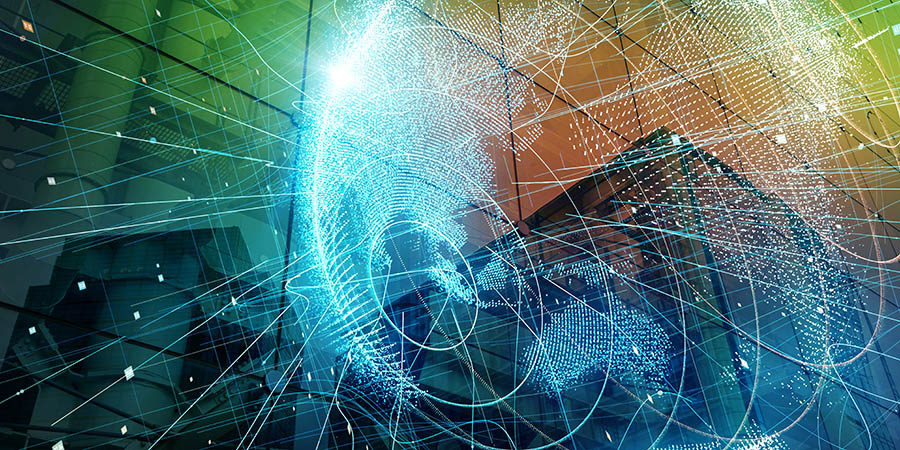In a world where technology is constantly evolving, the Asia-Pacific region is at the forefront of a digital revolution. The Internet of Things (IoT) has become increasingly prevalent, leading to significant changes in digital evidence collection and forensic investigation. This advanced technology, combined with the vibrant societies of Asia, presents both new challenges and opportunities in the field of digital forensics.
The rise of IoT has resulted in a world where everyday objects are interconnected and data is shared across networks. This interconnectedness has profound implications for digital forensics. As the number of devices generating vast amounts of data continues to grow, the demand for experts in this field becomes crucial. The Asia-Pacific countries are no exception to this global trend, and their approach to IoT and data forensics reflects the unique challenges and innovations of the region.
The Evolution of IoT and Data Forensics in the Asia-Pacific
To comprehend the significant impact of IoT within the digital forensics landscape in the Asia-Pacific region, it is important to acknowledge the unique characteristics of this area. The Asia-Pacific region consists of a vast and diverse landscape, including technologically-advanced countries like Japan and South Korea, emerging markets like India and Vietnam, and remote areas that can be found in Australia and New Zealand.
This diversity presents a variety of challenges for digital investigators. Digital evidence extraction, which is typically carried out by law enforcement agencies and private forensic firms, plays a crucial role in solving cybercrimes, ensuring data security and resolving civil disputes. In recent years, the scope of this field has expanded to include IoT devices, which often store valuable data that is essential for investigations.
The IoT Explosion and Data Forensics
IoT devices, such as smart appliances and wearable technology, have been integrated into our everyday lives. They gather information about how users behave, where they are, and how they interact with these devices. This poses a unique challenge for investigators in the Asia-Pacific region. The large amount of data generated by these devices, combined with the different legal systems in each country, makes digital forensics difficult.
Dr. Jane Doe, an expert in digital forensics in the Asia-Pacific region, explains that the diverse legal systems and regulations in Asia make it even more complex to investigate IoT data. Some countries have strict data privacy laws, while others lack comprehensive legislation. This diversity highlights the need for a comprehensive approach to IoT forensics that can adapt to local legal requirements and cross-border data investigations.
Asia-Pacific's Digital Forensics Arsenal
Asia-Pacific has a range of resources available to address the challenges posed by IoT data forensics. Research and technological advancements are playing a crucial role in this battle. Institutions and private companies in the region are actively involved in developing digital forensic tools specifically designed for IoT investigations.
One notable contributor to this field is Dr. John Smith, a researcher at a prestigious university in Singapore. His work on IoT Forensics Frameworks explores innovative approaches to handling the diverse and complex sources of IoT data. Collaborative research and partnerships between academia, law enforcement and the private sector have been instrumental in providing the region with the necessary tools to navigate the intricate digital landscape created by IoT.
The international community has also recognized the significance of Asia-Pacific in the IoT and data forensics landscape. Cross-border collaboration and information-sharing are essential to addressing the challenges posed by global IoT networks. Initiatives like INTERPOL's Digital Crime Centre and international conferences provide a platform for experts in the region to share knowledge and best practices with their counterparts worldwide.
Challenges and the Way Forward
The challenges of IoT and data forensics in Asia-Pacific are constantly evolving as the IoT landscape continues to transform. The increasing number of IoT devices and applications, as well as issues related to cloud storage and encryption, requires digital investigators to constantly adapt. Privacy concerns and data protection regulations further complicate the situation.
To address these challenges, a harmonized approach to digital evidence collection, data preservation, and analysis is crucial. Collaboration between the public and private sectors, the development of standardized procedures, and the sharing of knowledge are key factors to consider when tackling these evolving challenges.
In conclusion, the Asia-Pacific region is at the forefront of IoT and data forensics, dealing with a complex combination of technological advancements and legal landscapes. With experts, researchers and institutions actively contributing to the field, the region is well-prepared to handle the expanding realm of digital evidence in an IoT-driven world. The future of digital forensics in Asia-Pacific offers both challenges and opportunities for those dedicated to unraveling the mysteries of the digital age.





